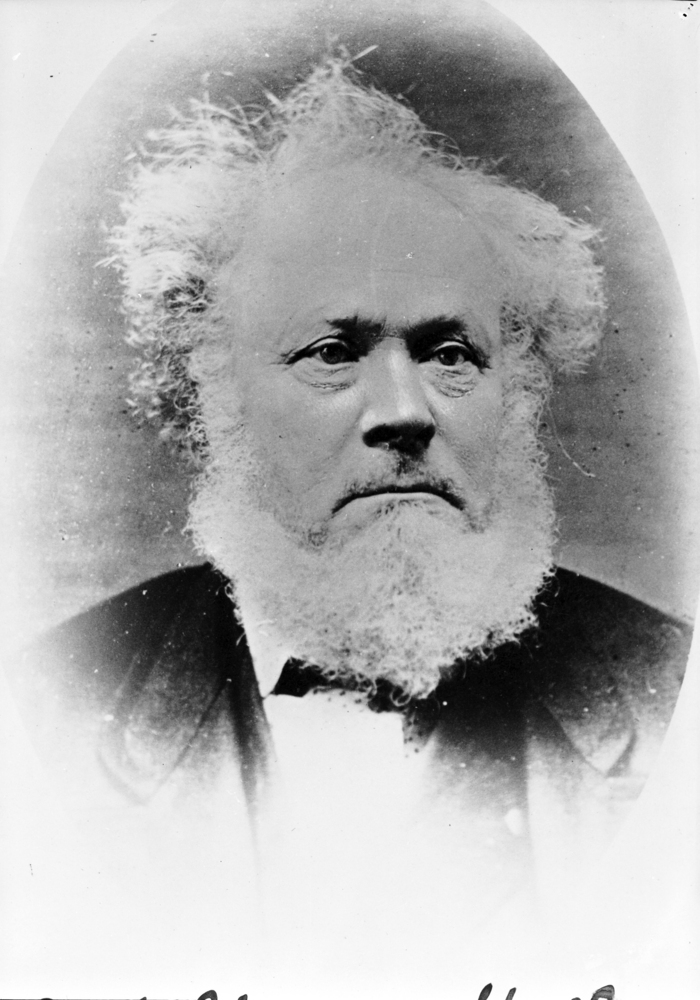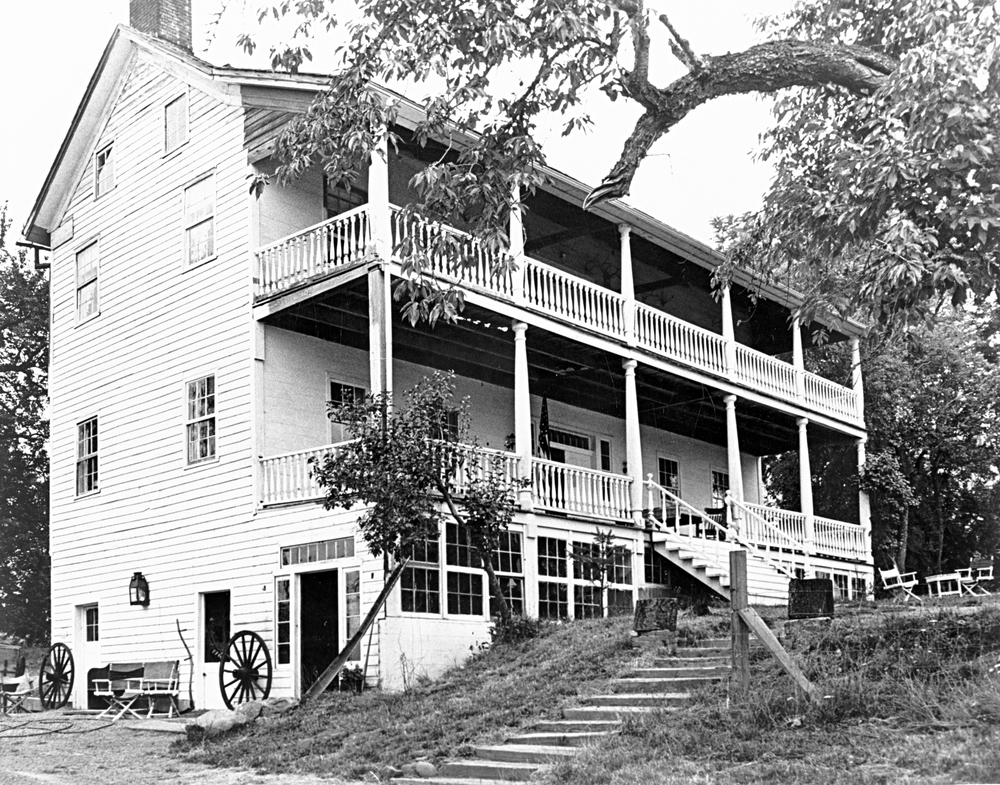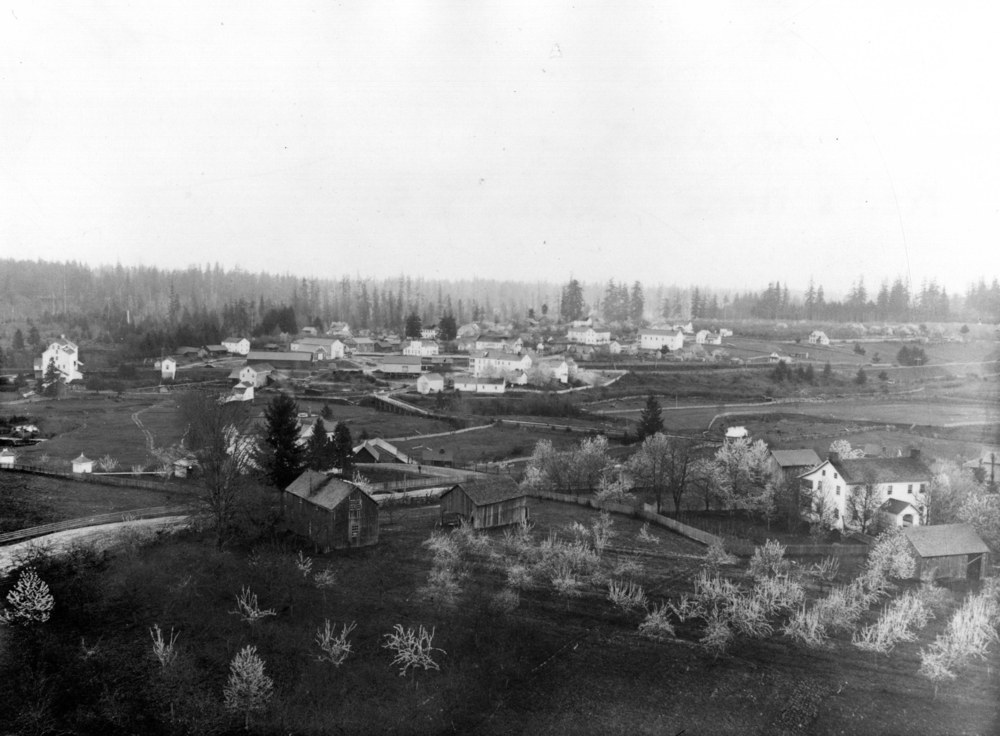Known by his followers as Father Keil and as Dr. Keil and King Keil to others, Wilhelm Keil was the leader of one of the most successful nineteenth-century utopian community experiments west of the Rocky Mountains. He was born in Bleicherode, Prussia in 1812. In 1836, he married Louisa Reiter, and the couple embarked for America soon after. Although Keil's intention in coming to the United States was not to form a utopian community, he arrived at a time of religious revival and the establishment of an increasing number of utopian communal societies.
In 1838, after arriving in New York City, Keil moved to Pittsburgh, where he made contact with individuals from George Rapp's Harmony Society. He went through a series of religious transformations but ultimately denounced all organized religion and sought to establish his own belief system among a group of devoted followers. In 1844, Keil sent scouts to find a location for a Christian community devoted to the Golden Rule. Later that year he established the colony of Bethel in Shelby County, Missouri.
After ten years in Missouri, Keil saw encroaching civilization as a threat to his colony, so he once again sent out scouts to find a suitable location for a new colony, this time in the Pacific Northwest. The group selected a site on the Willapa River in Washington Territory, and Keil led a group of eighty individuals there in 1855. The lead wagon was the hearse for Keil's oldest son, Willie, who had died shortly before the trip began.
After arriving at Willapa, Keil rejected the site as it was too remote and isolated for commercial opportunities. He and most of those who came from Missouri moved to Portland, where he learned there was land available twenty-five miles to the south in the Willamette Valley. In 1856, he established a new colony there named for his daughter Aurora.
For twenty-one years, Keil led the community as it built a hotel, church, and other buildings and became successful in developing crops and orchards. The community held true to its basic Christian beliefs, but Keil's isolationist view transformed into an understanding of the economic role the community could play in providing goods and products to the Willamette Valley's growing population. Among those products was the excellent food served at the Aurora Hotel and the music of the Aurora bands. Keil was instrumental in bringing the railroad to Aurora in the early 1870s as a way to connect Aurora with other cities.
Keil remained the leader of Aurora, and nominally of Bethel, until his death in December 1877. Soon after his death, efforts began to disband the two colonies, with the final dissolution taking place in 1883.
-
![]()
Wilhelm Keil.
Oregon Historical Society Research Lib., OrHi 4508
-
![]()
Wilhelm Keil House, Aurora Colony, as it looked in 1969.
Oregon Historical Society bb003849
-
![Aurora Colony from orchard above Wilhelm Keil House, in 1889]()
Aurora Colony.
Aurora Colony from orchard above Wilhelm Keil House, in 1889
Related Entries
Related Historical Records
Map This on the Oregon History WayFinder
The Oregon History Wayfinder is an interactive map that identifies significant places, people, and events in Oregon history.
Further Reading
Hendricks, Robert J. Bethel and Aurora: An Experiment in Communism as Practical Christianity with Some Account of Past and Present Ventures in Collective Living. New York: Press of the Pioneers, 1933.
Snyder, Eugene Edmund. Aurora, Their Last Utopia: Oregon's Christian Commune, 1856-1883.Portland, OR: Binford & Mort, 1993.






